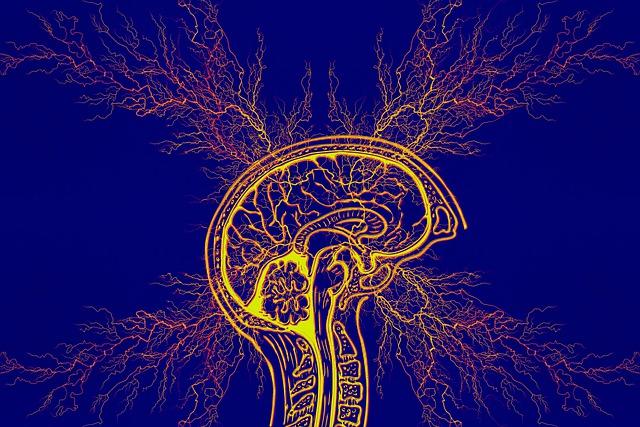ADHD Waking Up Early: Managing Sleep Challenges with ADHD!

Are you tired of hitting that snooze button every morning? If you have ADHD, waking up early may seem like an insurmountable challenge. But fret not! In this informative article, we will delve into the world of sleep challenges faced by individuals with ADHD and provide you with expert tips and strategies to manage your sleep better. So, grab a cup of coffee, sit back, and get ready to conquer those early morning blues!
Contents
- 1. Understanding the Unique Sleep Challenges Faced by Individuals with ADHD
- 2. The Link Between ADHD and Sleep Disorders: Exploring the Science
- 3. Effective Strategies for Establishing a Consistent Sleep Routine for ADHD Individuals
- 4. Managing Sleep Disruptions: Addressing Restless Nights and Insomnia in ADHD
- 5. Unlocking the Power of Natural Remedies for Better Sleep Quality in ADHD
- 6. Navigating Stimulant Medication Effects on Sleep Patterns in ADHD
- 7. Creating a Sleep-Friendly Environment: Tips for ADHD Individuals and Their Families
1. Understanding the Unique Sleep Challenges Faced by Individuals with ADHD
ADHD, or Attention Deficit Hyperactivity Disorder, can present unique sleep challenges for individuals who have been diagnosed with it. One of the most common sleep difficulties experienced by those with ADHD is waking up early. This can be frustrating and disruptive to daily routines, affecting overall well-being and productivity. So, how can we effectively manage sleep challenges when living with ADHD?
-
Maintain a consistent sleep schedule: Establishing a regular sleep routine can be incredibly beneficial for individuals with ADHD. Going to bed and waking up at the same time every day, even on weekends, helps regulate the body’s internal clock and promotes better sleep.
-
Create a sleep-friendly environment: Make sure your bedroom is a calm and comfortable space, conducive to sleep. Keep the room dark, cool, and quiet, and consider using blackout curtains, earplugs, or a white noise machine to minimize any disturbances that may disrupt your sleep.
-
Establish a relaxing bedtime routine: Wind down before bed by engaging in activities that promote relaxation, such as reading a book, listening to soothing music, or taking a warm bath. Avoid stimulating activities, like using electronic devices or watching TV, at least one hour before bed, as the blue light emitted from screens can interfere with sleep.
- Consider using supplementary aids: Some individuals with ADHD find it helpful to use sleep aids or medication, under the guidance of a healthcare professional. Melatonin, for example, is a natural hormone that can be used to regulate sleep patterns. However, it’s essential to consult with a healthcare provider before starting any new supplements or medications.
By incorporating these strategies into your daily routine, you can better manage the unique sleep challenges presented by ADHD. Remember, consistency and patience are key, and it’s important to work closely with your healthcare team to find the best approach for your specific needs.
2. The Link Between ADHD and Sleep Disorders: Exploring the Science
Sleep challenges are common among individuals with ADHD, and understanding the link between ADHD and sleep disorders is crucial for effective management. Recent research has shed light on the science behind this connection, providing valuable insights into how to navigate these challenges.
One of the primary reasons for sleep difficulties in individuals with ADHD is the overactivity of the brain. People with ADHD often experience racing thoughts and an inability to switch off their minds, making it challenging to fall asleep. Additionally, the regulation of sleep-wake cycles is disrupted in individuals with ADHD, leading to irregular sleep patterns.
Another factor contributing to sleep disorders in those with ADHD is the heightened sensitivity to external stimuli. Individuals with ADHD are more easily disturbed by noise, light, and other environmental factors, making it difficult to achieve a restful night’s sleep. This sensitivity can also manifest as restlessness or tossing and turning in bed.
While managing sleep challenges with ADHD can be daunting, there are strategies that can help improve sleep quality. Here are some tips to consider:
-
Establish a Consistent Sleep Routine: Set a regular bedtime and wake-up time, even on weekends. This helps regulate the body’s internal clock and promotes better sleep patterns.
-
Create a Sleep-friendly Environment: Minimize noise, light, and other distractions in the bedroom. Consider using earplugs, eye masks, or white noise machines to create a more conducive sleep environment.
-
Practice Relaxation Techniques: Engage in calming activities before bedtime, such as reading, listening to soft music, or practicing deep breathing exercises. These can help quiet the mind and prepare the body for sleep.
- Limit Screen Time: Avoid using electronic devices, such as smartphones or tablets, before bed. The blue light emitted by these devices can disrupt the production of melatonin, a hormone essential for sleep.
By understanding the link between ADHD and sleep disorders and implementing appropriate strategies, individuals with ADHD can improve their sleep quality and overall well-being. Remember, it is always beneficial to consult with a healthcare professional or sleep specialist for personalized guidance in managing sleep challenges associated with ADHD.
3. Effective Strategies for Establishing a Consistent Sleep Routine for ADHD Individuals
Establishing a Consistent Sleep Routine for Individuals with ADHD
For individuals with ADHD, establishing a consistent sleep routine can be a challenge. However, with the right strategies, it is possible to manage sleep difficulties and improve overall sleep quality. Here are some effective tips to help establish a consistent sleep routine for individuals with ADHD:
- Establish a regular bedtime: Set a specific bedtime and stick to it every night, even on weekends. Consistency is key in regulating sleep patterns.
- Create a calming bedtime routine: Engage in relaxing activities before bed, such as reading a book, taking a warm bath, or practicing deep breathing exercises. This helps signal the brain that it’s time to wind down.
- Limit screen time before bed: The blue light emitted by electronic devices can interfere with sleep. Avoid using screens at least an hour before bedtime to promote better sleep quality.
- Create a sleep-friendly environment: Make sure the bedroom is dark, quiet, and cool. Use white noise machines or earplugs if necessary to block out any disruptive sounds.
- Avoid stimulants close to bedtime: Limit consumption of caffeine and sugary foods in the evening as they can interfere with falling asleep.
- Consider melatonin supplementation: Melatonin is a hormone that helps regulate sleep-wake cycles. Talk to a healthcare professional about potentially using melatonin as a sleep aid.
By implementing these strategies, individuals with ADHD can improve their sleep routine and experience more restful nights. Remember, consistency and a relaxing bedtime routine are key to promoting better sleep habits.
4. Managing Sleep Disruptions: Addressing Restless Nights and Insomnia in ADHD
Sleep disruptions are a common challenge for individuals with ADHD, often leading to restless nights and insomnia. Fortunately, there are strategies that can help manage these issues and promote better sleep patterns.
Firstly, establishing a consistent sleep schedule is crucial for individuals with ADHD. Going to bed and waking up at the same time every day helps regulate the body’s internal clock, making it easier to fall asleep and wake up naturally. This schedule should include enough time for a full night’s sleep, typically between 7-9 hours for adults and 9-11 hours for children.
Creating a relaxing bedtime routine can also promote better sleep. This routine may include activities such as reading a book, taking a warm bath, or listening to calming music. It is important to avoid stimulating activities, such as using electronic devices or engaging in vigorous exercise, close to bedtime as they can make it more difficult to fall asleep.
In addition to these strategies, there are other lifestyle changes that can support healthy sleep in individuals with ADHD. Regular exercise during the day helps tire the body and improve sleep quality. Creating a comfortable sleep environment, with a cool and dark room, can also enhance sleep. It may be helpful to use blackout curtains, earplugs, or a white noise machine to minimize any disruptions that could interfere with sleep.
Overall, managing sleep disruptions in ADHD requires a holistic approach that combines consistent sleep schedules, relaxing bedtime routines, and a supportive sleep environment. By implementing these strategies, individuals with ADHD can improve their sleep quality, enhance their overall well-being, and better manage their symptoms.
5. Unlocking the Power of Natural Remedies for Better Sleep Quality in ADHD
The sleep challenges faced by individuals with ADHD can be particularly frustrating, as they often struggle with falling asleep and maintaining a consistent sleep schedule. However, unlocking the power of natural remedies can significantly improve sleep quality and overall well-being.
One effective natural remedy for better sleep quality in ADHD is establishing a bedtime routine. Creating a consistent routine signals to the brain that it is time to wind down and prepare for sleep. Consider incorporating calming activities such as reading a book, taking a warm bath, or practicing relaxation techniques like deep breathing or meditation. By consistently following a routine, you can train your body to associate these activities with sleep, making it easier to drift off at night.
Another natural remedy worth exploring is the use of essential oils. Certain oils such as lavender or chamomile have calming properties that can help induce sleepiness and promote relaxation. Consider using an essential oil diffuser in your bedroom or applying a few drops to your pillow before bed. Experiment with different oils to find the scents that work best for you and your individual needs.
Additionally, it’s important to address any underlying factors that may be contributing to sleep difficulties in individuals with ADHD. For example, poor sleep hygiene, such as excessive screen time close to bedtime or a sleep environment that is not conducive to rest, can greatly impact sleep quality. Make sure your bedroom is dark, quiet, and at a comfortable temperature. Avoid engaging in stimulating activities or consuming caffeine in the hours leading up to bedtime.
Incorporating these natural remedies into your sleep routine can help you manage sleep challenges and improve overall sleep quality, leading to better overall well-being. Remember, it may take time to find the combination of strategies that works best for you, so be patient and willing to experiment. By unlocking the power of natural remedies, you can take control of your sleep and wake up feeling refreshed and ready to tackle the day ahead.
In individuals with ADHD, sleep challenges are not uncommon, and one of the most prevalent issues is waking up early in the morning. While stimulant medications are often prescribed to manage ADHD symptoms effectively, they can also have an impact on sleep patterns. This post aims to guide you through navigating the effects of stimulant medication on sleep in ADHD and help you manage sleep challenges like waking up too early.
1. Establish a consistent sleep schedule: Creating a routine bedtime and wake-up time can help regulate your sleep patterns. Make sure to maintain this schedule even on weekends or during vacations.
2. Avoid stimulant medication in the late afternoon or evening: If you experience difficulty falling asleep due to the medication, consult your healthcare provider about adjusting the dosage or considering alternative medications that have less impact on sleep.
3. Create a sleep-friendly environment: Make your bedroom a calm and relaxing sanctuary that promotes quality sleep. Consider using blackout curtains, white noise machines, or earplugs to minimize disruptions.
4. Practice good sleep hygiene: Prioritize wind-down time before bed, avoid electronic devices, and engage in relaxing activities like reading or taking a warm bath. Establishing a bedtime routine can signal to your brain that it is time to sleep.
5. Explore non-medication sleep aids: In some cases, supplements or natural sleep aids like melatonin may be helpful in regulating sleep patterns. However, it is crucial to consult with your healthcare provider before incorporating these into your routine.
Remember, each person with ADHD is unique, and what works for one individual may not work for another. Consulting with a healthcare professional who specializes in ADHD can provide personalized strategies for managing sleep challenges.
7. Creating a Sleep-Friendly Environment: Tips for ADHD Individuals and Their Families
Creating a sleep-friendly environment is crucial for individuals with ADHD and their families. Lack of sleep can exacerbate the symptoms of ADHD, leading to increased hyperactivity, impulsivity, and difficulty with attention. To help manage sleep challenges, here are some practical tips:
1. Establish a consistent bedtime routine: Having a set routine signals the brain that it’s time to wind down and prepares the body for sleep. This can include activities such as taking a warm bath, reading a book, or listening to calming music. Consistency is key to reinforce the body’s natural sleep-wake cycle.
2. Create a soothing bedroom environment: Designing a tranquil space can promote a better night’s sleep. Make sure the room is dark, quiet, and at a comfortable temperature. Consider investing in blackout curtains, white noise machines, or earplugs to block out any disturbances. Additionally, remove electronic devices from the bedroom to minimize distractions and the blue light that can interfere with sleep.
3. Use sleep aids when necessary: Sometimes, individuals with ADHD may struggle with falling asleep or staying asleep. In such cases, consult a healthcare professional who can recommend safe and appropriate sleep aids. These may include melatonin supplements or prescription medications under the supervision of a doctor.
By implementing these tips, individuals with ADHD and their families can create an environment conducive to restful sleep, allowing for improved focus, attention, and overall well-being. Remember, consistency and patience are key in establishing healthy sleep habits! In conclusion, managing sleep challenges with ADHD doesn’t have to be a perpetual battle. By understanding the unique relationship between ADHD and waking up early, and implementing practical strategies tailored to your needs, you can gain control over your sleep and enhance your overall well-being. Remember, consistency is key, so give yourself time to adjust and experiment with different techniques until you find what works best for you. With the right approach, a restful and rejuvenating night’s sleep is well within your grasp. So, seize the opportunity to build healthy sleep habits, seize the day, and unleash your true potential!









